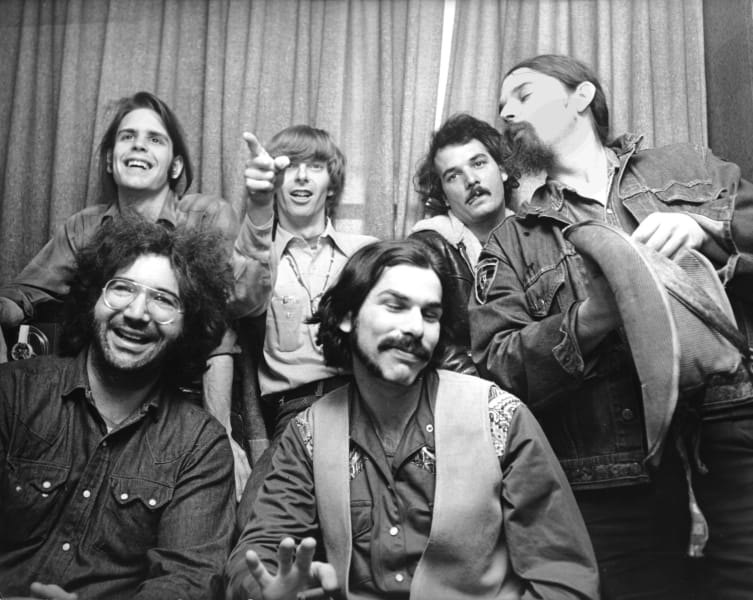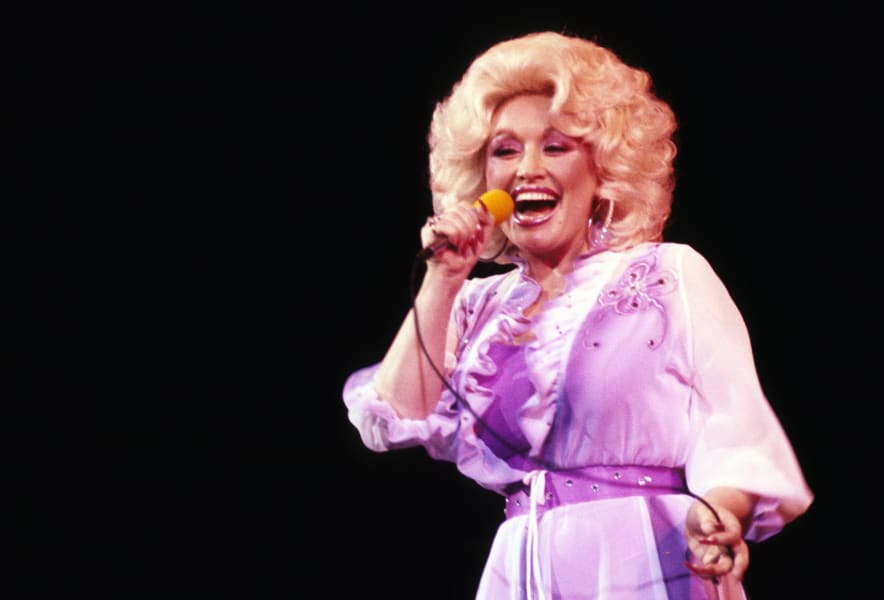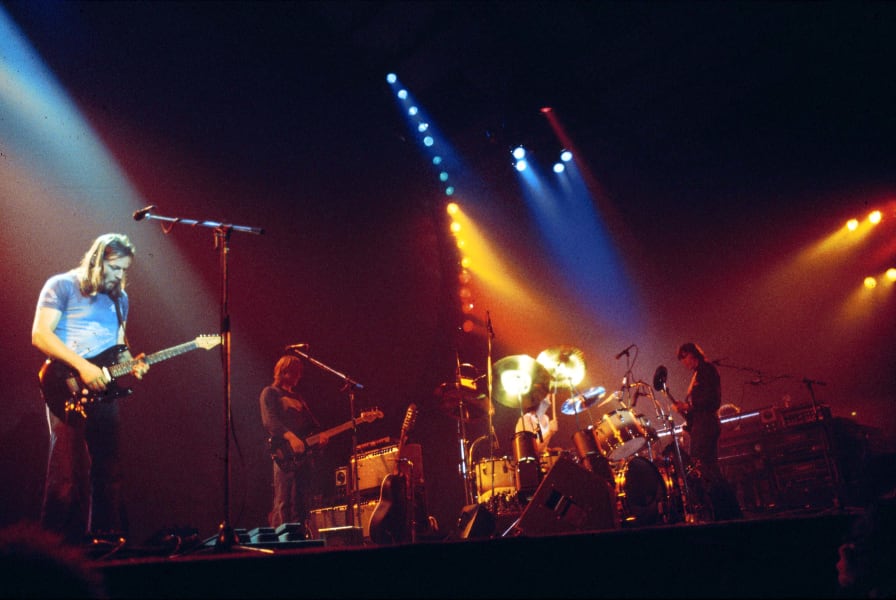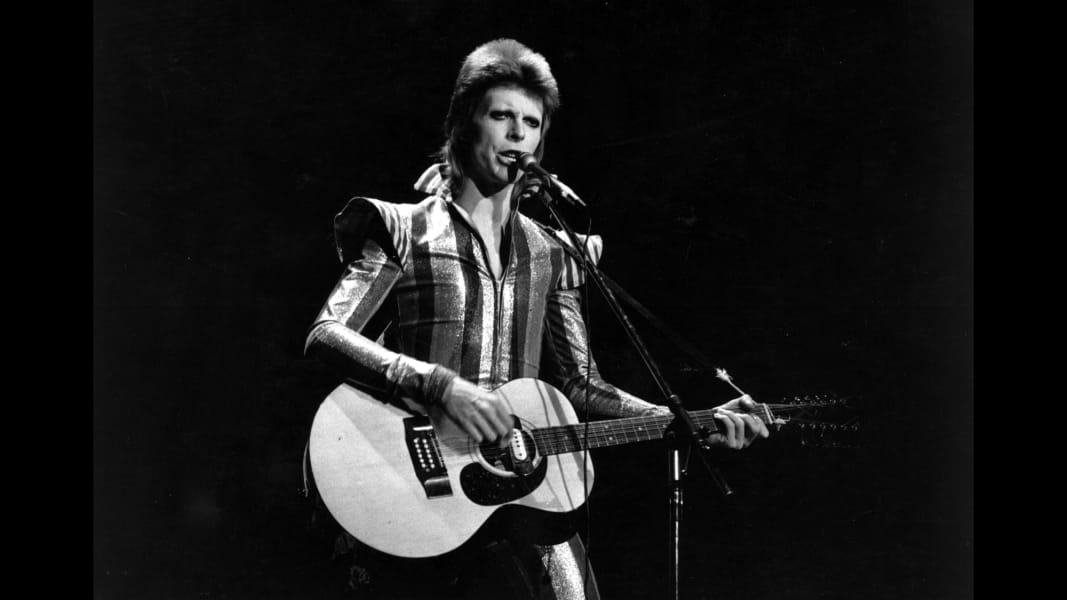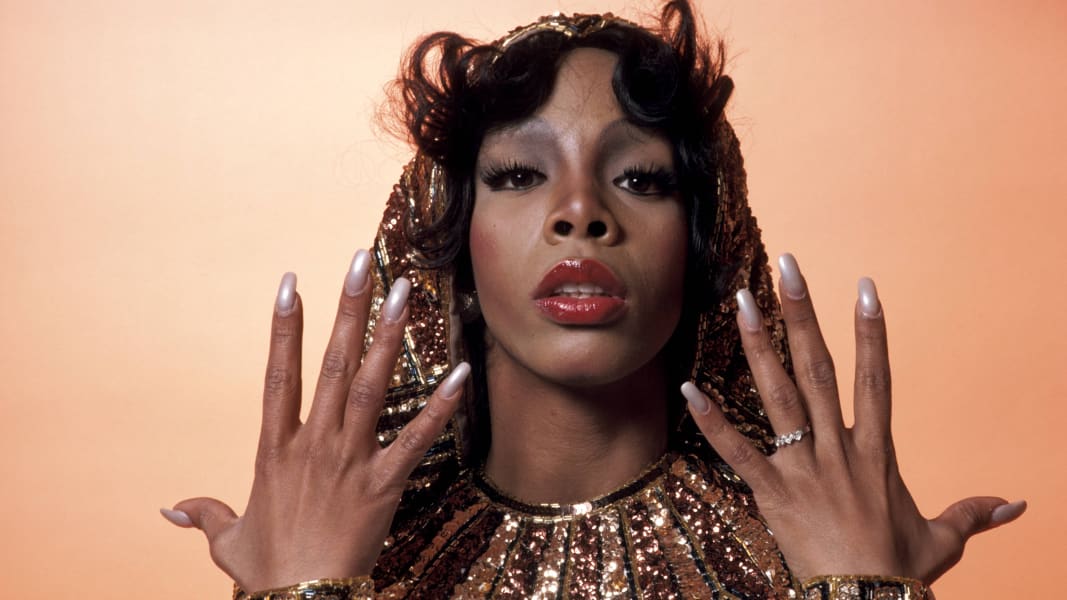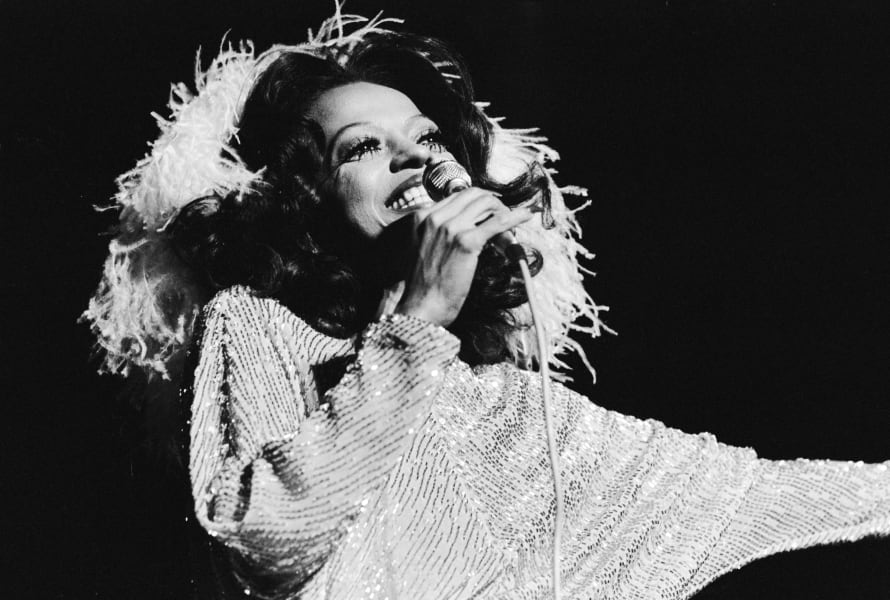Share
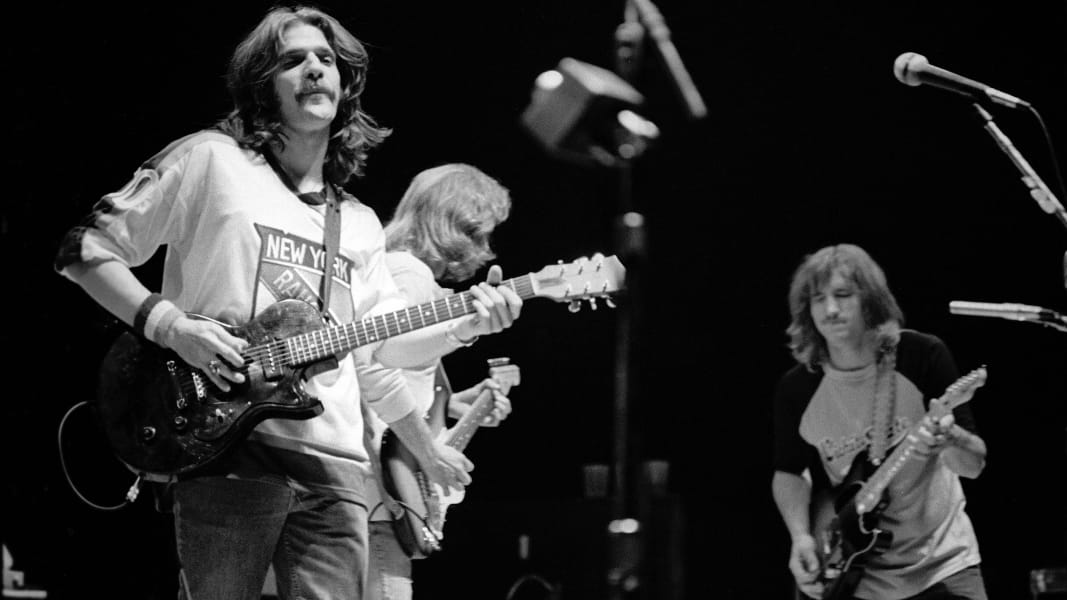

1 of 37
This quintessential '70s band gave us classics like "Hotel California," "Take It Easy" and "Desperado." The band's success has placed it on such lists as Rolling Stone's 500 Best Albums of All Time and the 100 Greatest Artists of All Time. Richard E. Aaron/Redferns/Getty Images
David Bowie -- aka "Ziggy Stardust," aka the "Thin White Duke" -- is one of the most iconic pop figures of the '70s. His shape-shifting persona was emblematic of the fluidity of his sound and style, ranging from the far-out "Moonage Daydream" to more traditional songs like "Heroes" and "Changes." Learn more about the music of the 1970s in the CNN original series, "The Seventies." Express/Getty Images
Summer's racy "Love to Love You Baby" was a few minutes of singalong with a few more minutes of something else entirely. The single catapulted her into stardom and sex-symbol status, making her the first artist to have three consecutive double albums reach No. 1 on the Billboard charts. Fin Costello/Redferns/Getty Images
Joey, Johnny, Dee Dee and Tommy: four guys from New York City who introduced garage punk to the masses with "Blitzkrieg Bop" and "I Wanna Be Sedated." Their belligerent, in-your-face sound and their long-haired, dressed-down look made them instant punk archetypes, placing them among the most influential bands of the decade. Michael Ochs Archives/Getty Images
In the early '70s, this English quartet was arguably the biggest band on Earth, selling out stadiums, dressing in flamboyant clothes, flying in private jets and, if the legends are true, indulging in wild, hedonistic habits excessive even by rock-star standards. They also turned out a series of chart-topping albums, including their untitled fourth that featured their immortal "Stairway to Heaven." Laurance Ratner/WireImage
This born-and-bred Motown family made history by being the first recording act whose initial four singles hit No. 1 on the Billboard Hot 100 list: "I Want You Back," "The Love You Save," "ABC" and "I'll Be There." Their crossover success spawned Jackson mania and a worldwide love affair with the charming little front man, Michael Jackson. RB/Redferns/Getty Images
After The Velvet Underground broke up in the early '70s, Reed transitioned to a successful solo career. He crafted songs about life on the street with the junkies and outcasts, as exemplified by tracks like "Walk on the Wild Side," "Perfect Day," and "Caroline Says II." Reed offered rock with an art-school sensibility, punk sentiment at an unhurried tempo. Rose Hartman/Getty Images
One of the biggest bands of the '60s, the Rolling Stones continued their success in the new decade, beginning with their "Sticky Fingers" album in 1971 and followed by their critically acclaimed "Exile on Main St." in 1972. The band recorded Exile's songs while hiding out in a villa in southern France to avoid financial trouble. The album is considered by many to be the Stones' greatest. Daily Mirror/Mirrorpix/Corbis
John's pop triumph came from a series of hits in the early '70s, including "Tiny Dancer," "Your Song" and "Bennie and the Jets," the bar-room singalong that, somehow, no one knows the words to. He's best known for his stadium tours, playing to sold out crowds in extravagant, glittering costumes and his signature tinted sunglasses. Terry O'Neill/Getty Images
A prodigy of the '60s, Wonder became a musical powerhouse in the '70s with his boundless creativity and vibrant vision for the future of soul. His streak of genius gave us a string of masterpiece albums: "Music of my Mind," "Talking Book," "Innervisions," "Fulfillingness' First Finale" and "Songs in the Key of Life." Michael Ochs Archives/Getty Images
The '70s began with the "death" of the Beatles, enabling the rebirth of Lennon, Paul McCartney, George Harrison and Ringo Starr as individual artists. While McCartney found pop success with his wife in their new band, Wings, Lennon took a more personal and political approach with songs like the charged "Working Class Hero," "Instant Karma" and "Imagine." Watford/Mirrorpix/Corbis
This English rock band had a string of hits in the '60s, but one of its most memorable -- and controversial -- songs, "Lola," came at the dawn of the '70s. The song's gender-bending narrative was an atypical subject for the Kinks but speaks to the fluidity of sex and gender that was becoming more common in the popular music of the decade. Michael Putland/Getty Images
Folk singer Cat Stevens, who later changed his name to Yusef Islam, had a knack for quiet, catchy songs with messages of peace. Among his notable hits of the era: "Morning has Broken," "Wild World" and "Peace Train," an anti-war song that offered optimism instead of protest. Ian Dickson/Redferns/Getty Images
The original "Soul Man," Isaac Hayes was the embodiment of '60s and '70s R&B. Hayes was many things: record producer, singer, songwriter, actor and humanitarian, but perhaps he is best remembered for his composition of the "Theme from Shaft," which helped define the sound of '70s blaxploitation movies and earned him an Academy Award for Best Original Song. Hulton Archive/Getty Images
Formerly part of a 60's songwriting duo with Gerry Goffin, King stepped into the spotlight with her 1972 Grammy-winning Album of the Year, "Tapestry." King's intimate and emotive lyrics on love lost and self-love made her a beacon of feminine energy in an era dominated by male rock stars. Jim McCrary/Redferns/Getty Images
Hits "Born to Run and "Thunder Road" breathed new life into the rock scene in the 1970s, with some critics quick to label Springsteen as the "new Dylan." His songs told stories of everyday life and youthful rebellion, imbuing them with a sense of splendor, urgency, and importance. Michael Ochs Archives/Getty Images
Dylan's work in the '70s proved that the "voice of a generation" could evolve, even thrive, after '60s success. His most popular song of the decade, "Knockin' on Heaven's Door," is one of the most-covered Dylan songs of all time. Dylan became a born-again Christian in 1978, releasing the gospel-influenced album "Slow Train Coming" the following year. It featured "Gotta Serve Somebody," his last hit single of the decade. Steve Morley/Redferns/Getty Images
This British-American group's inter-relational drama became the fuel for its biggest hit record, "Rumours," which follows the emotive lifespan of a love affair with songs like "Dreams," "Go Your Own Way," "The Chain" and "Don't Stop." Richard Creamer/Michael Ochs Archives/Getty Images
Marvin Gaye's soulful query, "What's Going On," rings with a genuine skepticism on issues like war, poverty and racial tensions. The song was monumental for its combination of soul and protest. It has transcended its time and place to become a universal cry for answers and hope in difficult times. Rolling Stone ranked it No. 4 on its list of the 500 Greatest Songs of All Time. Jim Britt/Michael Ochs Archives/Getty Images
A "good ol' boy" with top-notch musical talent, Campbell is among the most successful country-crossover acts to date. His two giant hits in the '70s were "Rhinestone Cowboy" and "Southern Nights." David Redfern/Redferns/Getty Images
Mitchell's acoustic-folk style took elements of the '60s hippie movement and gave them new life in the '70s by incorporating influences from pop and jazz. "A Case of You," "California," and "River" offer Mitchell's heartfelt intimations on love, loss and wanderlust. Robert Knight Archive/Redferns/Getty Images
Young's solo career in the '70s presented a successful mix of acoustic and electric folk rock. His signature voice and personal lyrics give emotional weight to songs, like the existential anxiety in "Old Man" and the aimless longing in "Heart of Gold." Chris Walter/WireImage
Known as the Reverend, Green is considered one of the most gifted soul singers of all time. His smooth, sultry sound filled the airwaves with hits like "Tired of Being Alone," "I'm Still In Love With You" and his signature song "Let's Stay Together." Tony Russell/Redferns/Getty Images
This British punk-rock band burst onto the scene in 1977 with declarations of "Anarchy in the U.K." and "no future in England's dreaming." Its anti-establishment antics paved the way for bands like The Clash, The Runaways and the Dead Kennedys. Express/Getty Images
These three brothers first saw success in the '60s with a sound many compared to the Beatles. With the hit "Jive Talkin'" in 1975 and significant contributions to the "Saturday Night Fever" soundtrack in 1977, the Bee Gees helped popularize disco, pulling the genre out of clubs like Studio 54 and into the mainstream. NBC/Getty Images
This former frontman of the Stooges is recognized as a major influence on the early punk scene. In the '70s, his collaboration with David Bowie fueled his biggest commercial success, 1977's "Lust for Life." The unforgettable opening drumbeat has infiltrated the sonic landscape through widespread reuse in commercials, film, and songs like Jet's "Are You Gonna Be My Girl." Michael Ochs Archives/Getty Images
Queen is best known for its operatic performances and for singer Freddy Mercury's emotionality and whimsy on stage. The band pushed the limits of the rock genre with chart-toppers like "We Will Rock You," "Bohemian Rhapsody" and "Somebody to Love." George Rose/Getty Images
The sweet, some say saccharine sibling duo saw huge commercial success with hits that exemplified the soft sound of '70s pop music -- songs like "Top of the World," "Close to You" and "Rainy Days and Mondays." ABC Photo Archives/Getty Images
If you hear an ABBA song in the morning, chances are it'll be stuck in your head all day. This Swedish quartet was the embodiment of mainstream '70s pop with hit singles like "Honey, Honey," "Dancing Queen," and "Waterloo." The group's hyper-catchy sound catapulted it to lasting popularity, with more than 300 million records sold worldwide. Michael Ochs Archives/Getty Images
Kiss' iconic makeup and hyperbolic pyrotechnic performances bred a new kind of rock where theatrics were just as important -- or even more important -- than music. For fans, there was no boundary between the band and its comic-book personas: Gene Simmons as the tongue-flicking demon, Paul Stanley as the dreamy star child, Ace Frehley as the far-out spaceman and Peter Criss as the catman. Chris Walter/WireImage
Wonder Mike, Master Gee and Big Bank Hank were brought together to create "Rapper's Delight," the 14-minute rap odyssey recorded in just one take. This collaboration, meant to save a record studio from bankruptcy, became the song that brought hip-hop to the mainstream. Michael Ochs Archives/Getty Images
A mainstay of New York's vibrant punk and new-wave scenes in the mid '70s, Blondie broke out in 1978 with the reggae- and disco-infused "Heart of Glass" off its third album, "Parallel Lines." Lead singer Debbie Harry used her powerful voice, punk attitude and unapologetically glamorous personal style to create a new archetype for women in rock. Roberta Bayley/Redferns/Getty Images
The Clash was one of the few punk bands to experience mainstream, commercial success in the '70s. "London Calling," the band's third album and its first to hit big in the United States, presented songs influenced by the social, political and economic turmoil of the times. Julian Yewdall/Getty Images
She found fame in the '60s with the Supremes, but American soul singer Diana Ross had a string of solo pop hits in the '70s, from "Ain't No Mountain High Enough" to "Love Hangover." Terry O'Neill/Getty Images
Founded in 1965, the Grateful Dead kept chugging through the 1970s with near-nonstop touring. The original jam band, seen here in 1970, featured (clockwise from top left): Bob Weir, Phil Lesh, Bill Kreutzmann, Ron "Pigpen" McKernan, Mickey Hart and Jerry Garcia. Chris Walter/Getty Images
Dolly Parton, seen here in 1978, was a respected country queen before finding mainstream success in the '70s with hits like "Jolene" and "I Will Always Love You" (famously covered later by Whitney Houston). Richard E. Aaron/Redferns/Getty Images
Progressive British rockers Pink Floyd, here on their "Animals" tour in 1978, were one of the most acclaimed and influential bands of the decade. Their classic 1973 album, "Dark Side of the Moon," lingered on the Billboard chart for more than 14 years. David Redfern/Redferns/Getty Images
